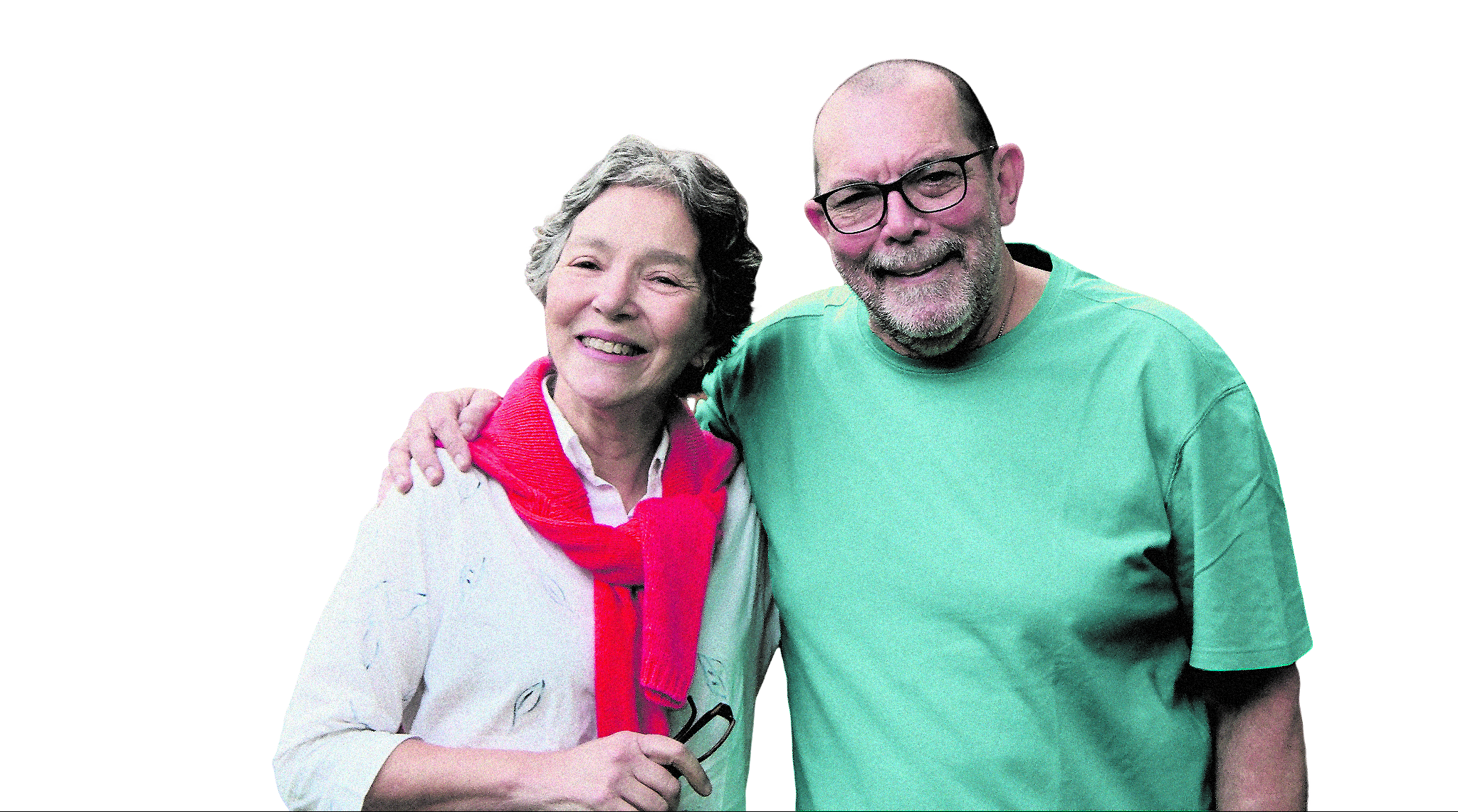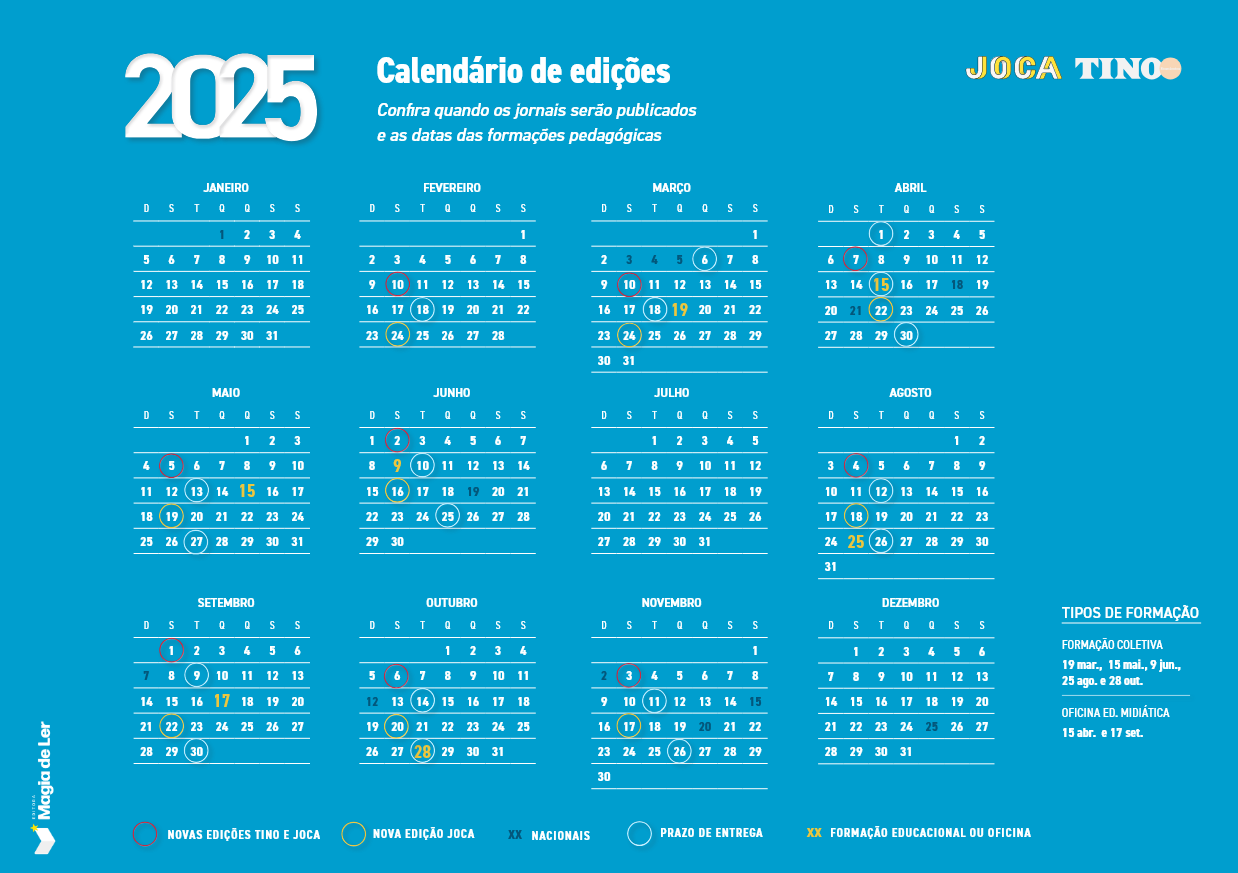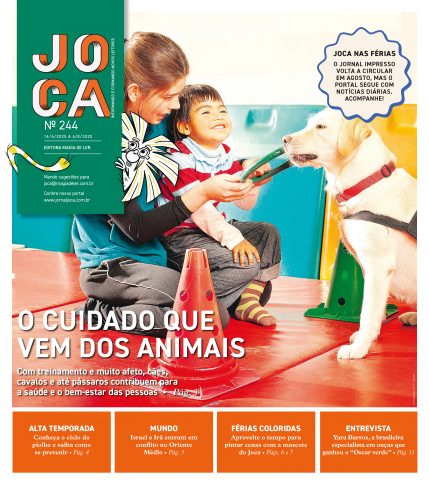Edições Impressas
9 de fevereiro de 2024
Poetry and nature during childhood – Level 3
Article published in Joca 217

Lázaro Simões Neto, known as Lalau, is an advertising professional and the author of a collection of children’s books who has published over 70 works. Together with illustrator Laurabeatriz, he created the collection “Brasileirinhos” (small Brazilians), which explores Brazilian fauna and its importance through poetry. The pair has also produced other works following the same model. Junior reporters André F., age 8, and Clara F., age 10, interviewed Lalau to find out more.
Did you want to be a poet or writer when you were a child?
I don’t think so. I think this thing just happened throughout my life. When I was a child and learned how to read, it was something really magical. It’s magical in everyone’s life, right? Then I became a reader, a very active reader. I think that because I loved reading so much, and had a passion for words, for books, suddenly, in the middle of my life, this little seed of wanting to become a writer, to do something with literature, started to appear. When I was a teenager, I started to think about writing, mostly poetry, because friends of mine had a band at the time, and I wrote the songs’ lyrics.
Why are you so connected to nature?
This really comes from childhood. I spent my childhood in a place near the Guarapiranga dam [São Paulo] where there were a lot of birds. I used to go to the dam a lot, and I had a grandfather who really encouraged me to connect with nature. When I was a kid, he took me to the Pantanal. In one of my books there’s even a poem that pays homage to my grandfather, because he knew how to imitate the chirping of birds. “Ah, this one is jaó, this one is japu, this one is bem-te-vi”, he would teach me. Over time, this evolved, so I have used it in my books as well.
How can we get more children to like reading, writing, and producing books?
I believe that having books around, making books part of the home, is a good strategy. It is also important to read to children, especially those who don’t feel like reading. And one should serve as an example, that is, show that you like reading and pass this on to someone else.
Which of your poetry works is your favorite?
Ah, I really like the first book I wrote, Bem-Te-Vi. I really like that one because it was the first book, which kicked off Laurabeatriz’s and my journey. There are a number of things about it that make it my favorite book. I like them all, but I have a special affection for Bem-Te-Vi.
And when did you begin your partnership with Laurabeatriz?
It all started with Bem-Te-Vi. I had written the poems long before the book was published. Then, I met José Paulo Paes. I read a book by him called Olha o Bicho. That was in 1989. I was so delighted when I read it that I said: “Look, this is what I want to do. I want to write poetry for children.” And I started writing poetry non-stop. When Bem-Te-Vi was almost ready, I didn’t know what to do with it. I sent it to José Paulo Paes and he liked it, he even helped me with a few things that were somewhat wrong, and sent the book to [the publisher] Companhia das Letrinhas. They picked Laurabeatriz to illustrate the book. We only met each other on the day the book was launched. This year, our partnership will turn 30.
How many books have you published and how many more would you like to publish?
Every time Laurabeatriz and I do this calculation, we get to about 70 published books. Together with the others I have published, it’s over 70. But we haven’t decided to publish another 20 or 30. We’ll do this for as long as we can. There are still another two releases to come in 2024. One, Brasileirinhos da Mata Atlântica, will be by Companhia das Letrinhas. And the second one, called Vovôs e Vovós da Floresta, is by another publisher. It’s about growing old, something that is happening to me and happens to animals. In the book, for example, there’s an owl that can’t really see at night because it’s old. So the fireflies help out by lighting the way so it can reach its nest. It’s about how we should care for the elderly.
Ixi! Você bateu no paywall!
Ainda não é assinante? Assine agora e tenha acesso ilimitado ao conteúdo do Joca.











Você precisa fazer o login para publicar um comentário.